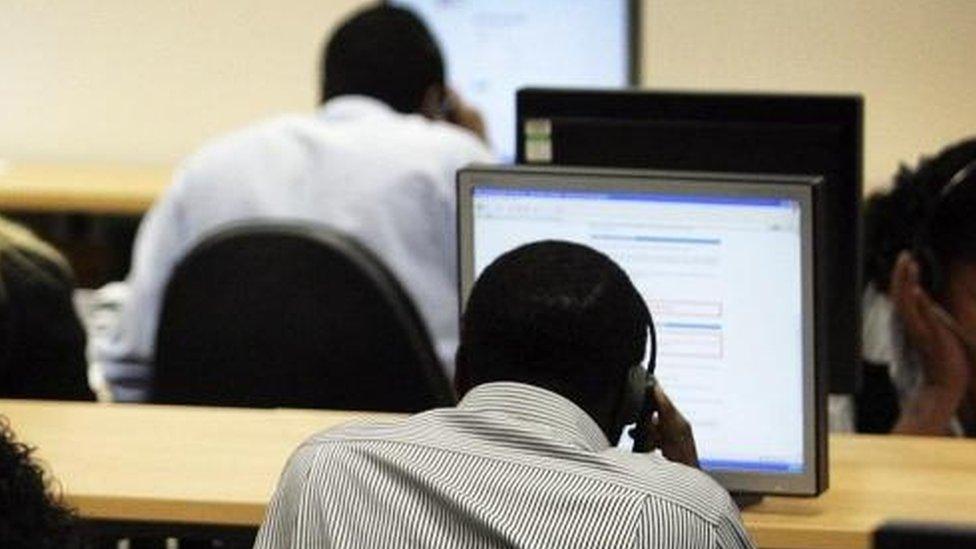Why is the UK economy in a funk?
- Published
- comments

Growth in the UK's dominant service sector has slowed
Over the past 48 hours, three sets of economic data have been published which suggest the UK economy is heading for choppy waters.
In fact, some believe it may already be there.
This morning, the UK Purchasing Managers' Index revealed weakening optimism in a sector vital to the strength of the economy - services.
The PMIs - which cover the whole of the UK economy - are important for three reasons.
First, they are a survey of business activity.
Second, they are a record that goes back to 1996 and are therefore comparable.
Thirdly, there is a close correlation between the PMI figures and the country's gross domestic product (or, approximately, national income).
So, if the PMIs are suggesting poorer economic news, the GDP figures are likely to as well.
The services business activity PMI released this morning stood at 52.3, the lowest since February 2013 when Europe was still licking its wounds following the eurozone economic crisis.
Although the figure would need to fall below 50 to reveal an actual contraction in activity, 52.3 is still well below the 55.2 average over the past 20 years.
Today's figures follow the construction sector PMI released yesterday, which was also at a three-year low, and the manufacturing PMI which, at 49.2, has now fallen below that critical 50 figure.
According to Markit and CIPS, the two organisations that compile the data, uncertainty over the European Union referendum, higher input costs (some connected to the introduction of the national living wage) and the general global economic slowdown are weighing on sentiment.
Worries have already raised about weakening UK economic growth in the first three months of the year.
The concern now is that it is only the start of tougher economic times ahead.
As Chris Williamson, chief economist at Markit, says: "The slowdown in the service sector follows similar weakness in manufacturing and construction to make a triple-whammy of disappointing news on the health of the economy at the start of the second quarter [of the year].
"The PMI surveys are collectively indicating a near-stalling of economic growth, down from 0.4% in the first quarter to just 0.1% in April."
We may only see the full effects of the slowdown - in data terms at least - when the next economic growth figures are published in July.
Many are preparing for them to be grim.